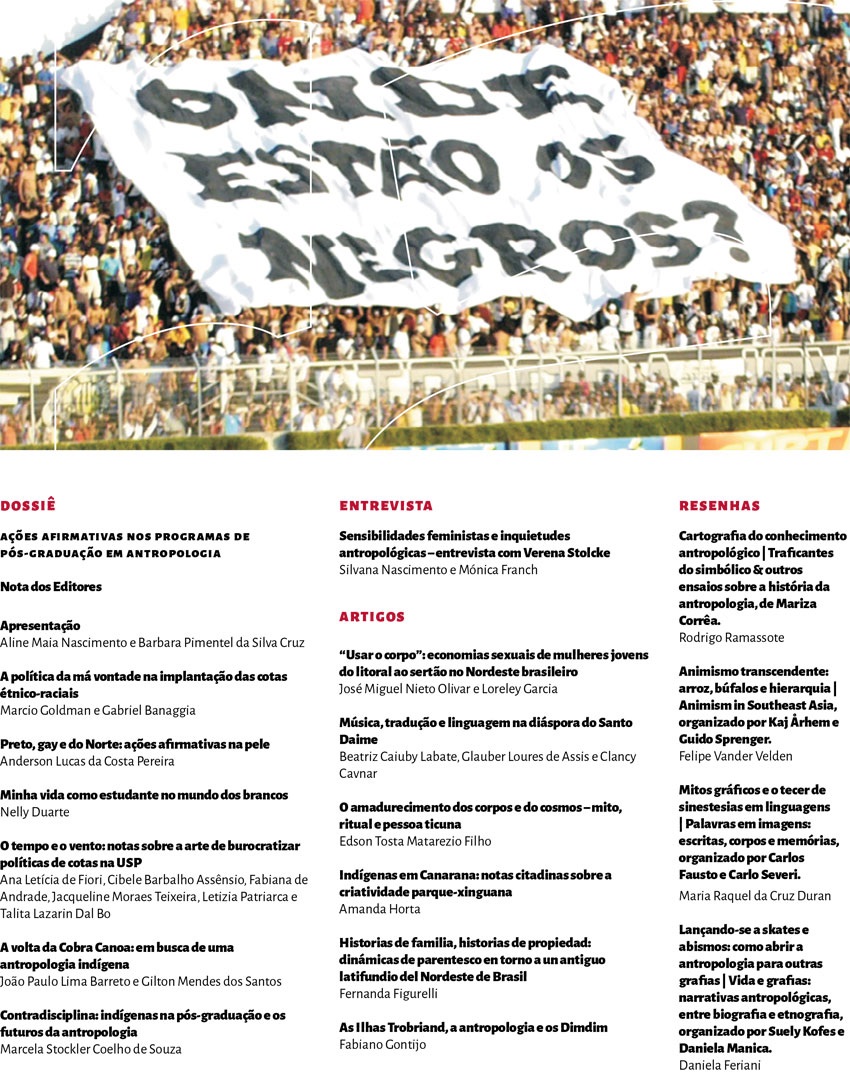Time and the Wind: Notes on the Art of Bureaucratize Quota Policies at USP
DOI:
https://doi.org/10.11606/2179-0892.ra.2017.132101Keywords:
Affirmative Actions, Post-graduate quotas, University of São Paulo, Anthropology Post- Graduate Programs, knowledge productionAbstract
Why quotas in graduate studies? This article addresses this inquiry by presenting a thick description of the several bureaucratic paths fared along the implementation of an affirmative action policy. This process creates an almost unsustainable tension between the long-term temporality of the bureaucracy and the necessary winds of social change that, in this case, claim a transformation of science production technologies and the widening of legitimate environment for scientific knowledge production. This article presents the framework and the events that led to the conception and processing of a quota proposition to the Post-Graduate Program in Social Anthropology of the University of São Paulo (PPGAS/USP). Thus, we present a cartography of the quota policies among other Anthropology Post-Graduate Programs in Brazilian’s current scenario. Finally, a more epistemic stance is presented in order to clarify how the widening of knowledge development environments is fundamental to bring forth plural and democratic venue in the making of anthropological knowledge.Downloads
Download data is not yet available.
Downloads
Published
2017-05-12
Issue
Section
Dossier - Affirmative Actions in Postgraduate Programs in Anthropology
License
Authors who intend to publish in this journal must agree with the following terms:
- a) Authors retain copyright and grant the journal the right of first publication. The work is simultaneously licensed under the Creative Commons Attribution License, which allows the work to be shared as long as the author and the initial publication in this journal are appropriately credited.
- b) Authors are authorized to sign additional contracts for non-exclusive distribution of the version of the work published in this journal (e.g., to publish it as a book chapter), as long as the author and the initial publication in this journal are appropriately credited.
- c) Authors are allowed and encouraged to publish and distribute their work online (e.g. on their personal webpage) after the editorial process, for this can generate productive changes as well as increase the impact and citation of the work. See The Effect of Open Access Publications.
How to Cite
De Fiori, A. L., Assênsio, C. B., Andrade, F., Teixeira, J. M., Patriarca, L., & dal Bo, T. L. (2017). Time and the Wind: Notes on the Art of Bureaucratize Quota Policies at USP. Revista De Antropologia, 60(1), 55-83. https://doi.org/10.11606/2179-0892.ra.2017.132101




